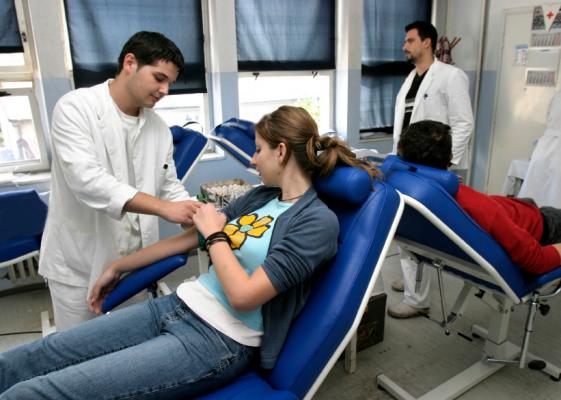
March 19, 2019 — Prevencio Inc. announced data confirming the high accuracy of its artificial intelligence (AI)-driven, multiple-protein HART CVE Test for predicting cardiovascular events (CVE) and HART CAD Test for diagnosing coronary artery disease (CAD). Researchers believe these findings, presented at the 2019 American College of Cardiology (ACC) Scientific Sessions, March 16-18 in New Orleans, demonstrate the robustness and accuracy of these tests. The new data, from two additional hospitals, confirm results previously published from Massachusetts General Hospital and James Januzzi, M.D.
HART CVE data was presented as “Validation of a Novel AI-driven Multi-biomarker Panel for Accurate Prediction of Incident Cardiovascular Events in Patients with Suspected Myocardial Infarction.” The study was conducted by the University Heart Center in Hamburg, Germany and led by Dirk Westermann, M.D., Ph.D., head of the Structural Heart Program. In this study, 748 patients presenting to the emergency room suspected of having a heart attack were followed for one year to assess future cardiac events, including heart attack and cardiac death. Prevencio’s HART CVE had high accuracy for predicting future cardiac events. The results included an area under receiver operating curve (AUC) of 0.86, a high negative predictive value of 99.4 percent, and a sensitivity of 86.4 percent.
Commenting on the study, Westermann said, “We were impressed with the high accuracy of the HART CVE test and look forward to publishing the data later this year as well as presenting robust data on HART CAD at European Society of Cardiology Scientific Sessions in September.” Westermann added, “The artificial intelligence, multi-protein approach is novel in cardiology and our data demonstrates the power of the HART platform that Prevencio has developed.”
A 500-patient HART CAD study from the INOVA Heart & Vascular Institute in Virginia was also presented at ACC. The study, “Validation of Novel Biomarker-Clinical Score to Predict Presence of Obstructive Coronary Disease,” was led by Christopher deFilippi, M.D., vice-chair of academic affairs. Results included a robust diagnostic odds ratio (DOR) of 4.69. DOR is the ratio of the odds of the test being positive if the subject has a disease relative to the odds of the test being positive if the subject does not have the disease. Additionally, the study yielded an AUC of 0.81 for patients under 65 years, demonstrating accuracy for younger patients.
deFilippi stated, “There has been a long-standing need for more accurate, noninvasive cardiac tests, and we are excited to be working on the next generation of diagnostic tests. Using the same algorithmic model and cutoff developed at Massachusetts General Hospital, these studies clearly confirm the accuracy of these tests in a variety of clinical settings and patient populations.”
Powered by AI, Prevencio employs a novel approach to blood tests for cardiovascular disease. The company has developed six blood tests to-date that significantly improve diagnoses for a variety of heart and blood vessel-related complications. These tests are:
1. HART CAD – obstructive coronary artery disease diagnosis
2. HART CVE – One-year risk of heart attack, stroke or cardiac death
3. HART PAD – peripheral artery disease diagnosis
4. HART AS – aortic valve stenosis diagnosis
5. HART AMP – risk of amputation
6. HART AKI – risk of acute kidney injury
For more information: www.prevenciomed.com
Related Content
VIDEO: Use of High Sensitivity Troponin Testing in the Emergency Department
VIDEO: Use of Artificial Intelligence To Speed Cardiac Clinical Research
VIDEO: Predictors and Outcomes of Reverse Remodeling in Heart Failure With Reduced Ejection Fraction


 July 31, 2024
July 31, 2024 









